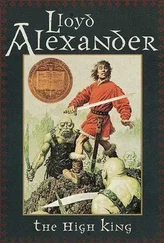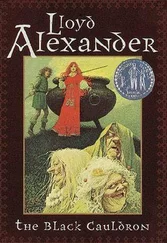My parents had given me a few Reichsmark to pay for necessities. They expected my aunt and uncle would feed and house me at no cost. That, of course, was wishful thinking and only partially true. I guessed it was my uncle Willy, the head of the house, who allowed me to come to Berchtesgaden over the objections of my aunt.
I stopped at a restaurant and looked at the menu. Sausages, which probably came from the local butcher shop, looked good to me. The savory meat was a special treat and was hard to get anywhere now. I sat at an outdoor table and wondered whether I should use my parents’ hard-earned money for such an extravagance. I needed something to cheer me up, so it didn’t take me long to decide. The owner took my order for one sausage and fried potatoes. The sausage was served bubbling in its own juices on a warm plate. The smell of the fried potatoes reminded me of the way my mother used to cook.
After I ate, I was unsure what to do. In two hours, I had scoured most of the town with no luck. I walked aimlessly for a while, enjoying the scenery until I saw my uncle walking toward me.
“Have you eaten?” he asked, and rubbed his belly.
I pointed to the restaurant where I’d had lunch. “The sausage was excellent.”
He pulled me aside into the shade of a shop’s awning. “I talked to your aunt after you left.” He frowned. “Don’t pay attention to her. She can be gruff at times. She’s trying hard to protect us from the war.”
I nodded. “I’m grateful for what you’ve done. Otherwise, I would have no place to go.”
He lifted a finger as if he were about to lecture me. “I’ve called upon a few people this morning. Being a policeman and a Party member opens doors. Apply at the Reichsbund and I’ll take it from there.” He tilted his head toward a building down the block draped with Nazi flags. “Don’t be shy. Go on. I’ll work my magic.” He gave me a peck on the cheek.
I left him, smiling, and walked to the Reichsbund, an office of the civilian service. I stared into a window crowded with books, banners, placards and Nazi publications.
Beyond the window, a woman dressed in a gray uniform sat at a desk. She looked up from her work as if she’d sensed my presence. Uncle Willy’s courage bolstered me. I stepped inside to see what positions might be available. The woman’s blond hair was pinned back in a rather strict style, but she was otherwise pretty, with high cheekbones, blue eyes and a thin nose. She was the kind of person you wanted to like. I supposed that was why she was in her position.
I inquired and she asked me to take a seat in an oak chair in front of her desk.
“I’m from Berlin living here with my aunt and uncle, but I need work.” I blushed at my inadequacy.
She stopped writing in her book, placed her pen in its center and closed the cover. “May I see your identification papers? Are you a Party member?”
I wondered why I had not joined the Party long ago. If I thought about my loyalties, I fell in line with my father, who was noncommittal at best, a silent critic at worst. Still, I needed work or I might be forced to return to Berlin. “My papers are at home with my aunt and uncle. I’m not a Party member.”
She eyed me rather suspiciously, but then, sizing me up, she must have judged I was no threat to Nazi politics. “Who are your aunt and uncle?”
“Willy and Reina Ritter. They are Party members and live near here.”
She clasped my hands like a schoolgirl chum. “I know them very well. They’re fine upstanding people, a credit to all loyal Germans. What’s your name?”
I told her and she listened raptly to my history. As I talked she took out another book, making notations on what I said. When I was through, she asked me to stand in front of a black screen near the back of the room. She took several pictures of me with a flash camera. These, she said, would go to her superior when they were developed.
“Is there anything I can do—that I would be qualified for?” I asked.
“There’s nothing in this district,” she said. “You’re not qualified as a bookkeeper, or as a gardener, for construction, or a locomotive engineer. Many women already serve the Reich, so positions are limited.”
I sighed. Reina would not be pleased.
The woman saw my frown and said, “But that doesn’t mean this interview was for nothing. The Reich always has work for its people whether or not you are a Party member.” She looked at me like a patient teacher. “If you were as supportive as your aunt and uncle, we could look upon you more favorably.”
I rose from my seat. “Where can I join?” I asked as sincerely as I could, yet something inside me rebelled at the thought of being a Nazi. My mother had once admonished my father for not being “stronger,” a man who thought more like the Party leadership. In order to get a job, I would have to adopt my mother’s thinking.
She pointed to a desk across the room. “Herr Messer will be here Saturday. Come see him.”
I walked out of the Reichsbund somewhat encouraged, although I didn’t want to face my aunt, because I still had no job prospects.
Reina was in the kitchen when I arrived, so I sneaked up the stairs to my room and put my feet up rather than face her.
About forty-five minutes later, I heard my uncle open the door and greet my aunt.
I found them sitting in the living room. Reina was shocked that I was home, but greeted me with a smile. “Willy told me the news. I’m sure something good will come of your interview.”
Uncle Willy lit a cigarette, exhaled and said, “I’m certain of it.”
That night at dinner, we talked of my aunt’s childhood in Spain and how she and my uncle had met at a hostel in the Italian Alps. Willy had lodged there for a political gathering; Reina was staying overnight with a group of hiking friends. They saw something in each other that members of my family couldn’t see.
The conversation died the same time as the fire and we went to bed about ten. I spent several hours worrying about work until I finally fell asleep. The next morning I went out again, but found nothing. Again, I dreaded coming home with no job. When I arrived, I found my aunt and told her the bad news.
She stood with her hands clasped in front of her, oddly calm considering her fervor for my search. “The Reichsbund called this afternoon. They want you to report in the morning. Apparently, they have a job for you.” She hugged me and kissed me on the cheek with her cold lips. Later, I asked Willy if he knew what the position was, but he shook his head.
That evening, we celebrated with wine. My aunt allowed me to call my parents to give them the good news. Frau Horst and my parents shared a phone in the building. My mother seemed pleased. I couldn’t tell what my father was thinking. I told them I was planning to join the Party. My father replied, “Do what you must to survive.”
His words cast a pall over my celebration.
I wasn’t a fortune-teller, but I wondered how dire my circumstances might become as a worker in the Reich.
Ireported to the Reichsbund the next morning. Instead of being greeted by the woman who’d taken my information the day before, an SS officer met me. He smiled pleasantly and asked me to take a seat in front of the desk. As I studied his face, handsome with Nordic features, I made a connection I had not considered before. Most SS men were young and similar in facial structure. The Führer wanted them to be Aryan. They were thinly muscular, usually blond and blue-eyed and driven by their adoration for their leader. They wore black uniforms when the Party first came to power, but recently they dressed only in gray. This young man was clothed in black and I understood later he was a member of the Führer’s Leibstandarte, his personal protection corps at the Berghof.
Читать дальше












